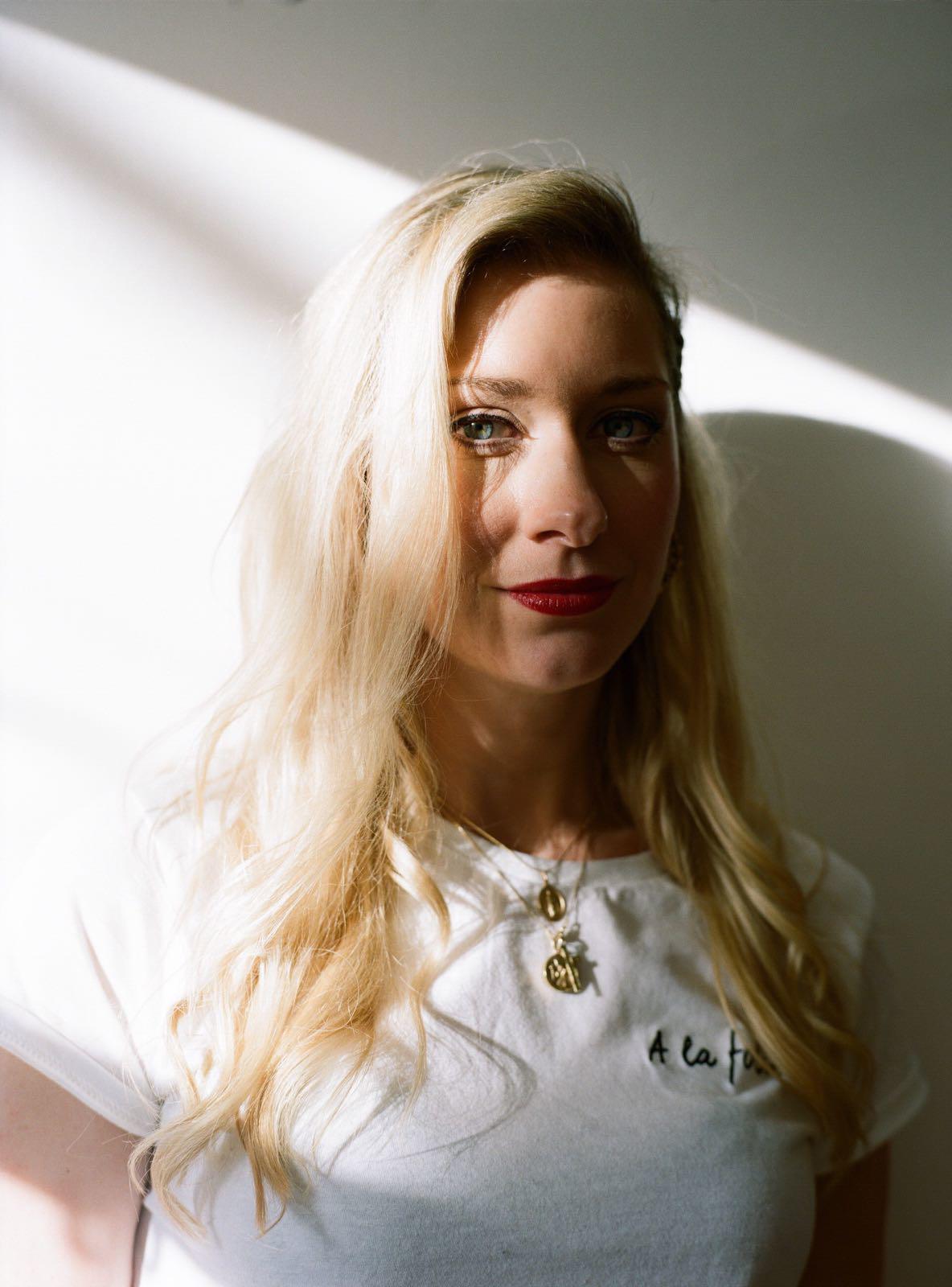
Emmy Brunner has a “controversial” take on root causes of eating disorders. As a trained psychotherapist specialising in eating disorders, this unlikely entrepreneur has spent the best part of her professional career fine-tuning her own, unique understanding of the complex and multi-faceted psychology of the disordered eater. After only a few years of practice in clinical settings, including stints in various addiction clinics, the then twenty-something Emmy began to notice that the system’s method of “treatment” didn’t sit particularly well with her. “When training to be a therapist,” she tells me, “you’re supposed to be very opaque, not show your personality, not wear jewellery and wear muted colours. You’re basically supposed to be like a blank screen for somebody.” Whilst for some this method of patient interaction is standard, for Emmy, it felt like utter “bullshit”.
The result? Emmy decided to go it alone and a few years later, The Recover Clinic opened its doors. Based on Emmy’s own independent research, as well as conclusions she’d drawn from her own patients and leading international experts, The Recover Clinic programme focuses on the entire person, as opposed to the eating disorder. Each person seeking help at The Recover Clinic follows a different programme according to their level of need -an approach that, in my experience, is significantly lacking on the NHS.
“NOT TELLING PATIENTS MY OWN STORY FELT LIKE BULLSHIT TO ME”
“We run groups all day everyday,” Emmy says, “one-to-one sessions, nutrition sessions, some CBT groups, life coaching, spiritual groups and sex and relationships.” Sex and relationships, by the way, is by far the most popular of all the groups which Emmy offers – I wonder why…?
Just to put this in perspective; when I was under NHS treatment for anorexia, confined to an inpatient ward, I was offered one group session of CBT per week along with one weekly individual session with my therapist; one nutrition session every two-three weeks and not much else. It should also be said that I was one of the lucky ones – out of 12 patients on the ward, only about five of us were assigned individual psychotherapists- so not even half. Despite not having worked in an NHS environment for a number of years, Emmy understands exactly what I’m talking about and nods knowingly as I explain the horror of my inpatient experience.
“It can be traumatising,” she says, hitting the nail slap bang on the head. “NHS funding has been cut so severely and even if you try and get a bed in the priory today, you wouldn’t be able to because it’s all full of NHS patients. It’s very medically led and I don’t think the care is particularly good. In fact, we had to make a complaint to a hospital recently because one the girls who has since been treated here was made to eat facing a wall.” Having spent two months in a place where I was forbidden to shower past 10am, and intensively stared at each time I ate a cereal bar, Emmy’s story hardly surprises me. I’m all too aware of the pitfalls of a ‘physical-health-first’ approach.
“MOST PEOPLE HAVE TRAUMA – THE EATING DISORDER IS A METHOD OF COPING”
For Emmy, the shortcomings of the service much of the NHS was providing (or not providing, as the case may be) was pretty obvious. Time after time, the young therapist found that although “aspects of the CBT offered can be helpful, a large proportion of those patients return to psychotherapy because it hasn’t resolved their issues”.
I’m dubious about tarring one kind of therapy with the same brush for all individuals, but as someone who’s had enough therapy to rival Russell Brand, I find myself agreeing with a lot of what Emmy is saying. Of all the patients (myself included) that I met during my treatment – from outpatient to inpatient admission – not one of them found their six to nine sessions of CBT particularly helpful. Sure, it helped with minor nerves and may have got them through one particularly challenging meal, but at the end of the day, they still had a fucked up relationship with control/food/their bodies.

According to Emmy, anxiety isn’t so much a part of the problem, but rather a symptom. “I think most people have a history of trauma. The ED has evolved as a way of coping with what happened to them,” she says, “what they’re feeling is frightened and everything is perceived as a threat, so they get comfort from the eating disorder,
“Most treatment is focused on symptom resolution,” she says, “getting people to stop bingeing or purging for instance. Yes, we talk about symptoms [at the Recover Clinic], but these people are traumatised and we need to help them to heal.”
Emmy’s words cast my mind back to my first day as an anorexia inpatient. I met Betty (not her real name, obviously – it’s 2017 ffs), who had battled with spells of bulimia and anorexia since the age of nine. She was now 28. This was Betty’s second go at inpatient treatment, but unlike the last time, she now didn’t have any weight to gain. Across six weeks I watched this intelligent, talented and goddamn hilarious young woman be batted between various health professionals and psychiatrists who had never even had a conversation with her. Her treatment programme was simple; keep her locked inside for a few weeks, police her eating activities and ultimately, squeeze the bulimia out of her. Two weeks into the “programme”, Betty disappeared from the ward for four days, leaving no sign of her whereabouts. When she eventually found her way back to Tottenham (the hospital, not the train station), Betty appeared a quivering, dark shadow of her former self. With pitiful psychological intervention to address her traumatic history, and the terror of a sudden day of food freedom, Betty binged. And purged. And binged again. For four days, she’d encased herself in her one-bedroom flat, only venturing out to stock up on case-loads of her kryptonite – and thus spent the following 24 hours with her head down the toilet bowl. Within moments of walking back onto the hospital ward, she was hurried in for emergency blood tests and heart scans and spent the next two days hooked up to a blood pressure machine. Clearly the method of; “just lock her up for six weeks so she can’t make herself sick” didn’t work for Betty and surprise, surprise, it didn’t work too well for me either.
“You’re giving them [patients] more work to do by discharging them and saying, right you’re ready to go home now, with this new body that you can’t cope with,” says Emmy. “It’s horrendous and really archaic.” So what is The Recover Clinic offering that traditional eating disorder treatments do not?
“WE ALL RESPOND BEST TO LOVE, KINDNESS AND COMPASSION”
“Everybody follows a different programme according to their level of need,” Emmy says, “We run groups all day, everyday and one-to-one sessions.” The Recover Clinic offers treatment strictly for women only, as Emmy feels as though, generally speaking, women have had a particularly tough ride and feel safer in a female-only space. Currently, The Recover Clinic is treating girls from the ages of 17-32 and patients aren’t weight assessed, but considered for treatment based on themselves as a whole person and how they would fit in with the rest of the group.
“Women talk and share stories and experience and just that sense of community is healing,” she explains, “I can tolerate someone’s un-wellness because I’m not frightened of it. When you’re terrified of who you are and how you’re behaving and somebody else isn’t afraid of that and they’re not saying; ‘you need to stop what you’re doing’, but instead saying, ‘I am just gonna be there until this is better’. I think that is more comforting than anything else.
“We all respond to love and kindness – the little plant will always lean towards the sun.” Emmy’s approach is a touchingly stark contrast to the six most traumatic weeks of my life, which were somehow classed as “health treatment”. Kindness meant the ward cook awarding you a non-mushy apple; love was supplied by my mum and boyfriend who were granted just two hour-long visits per week. When my brother flew over from Los Angeles to visit his sick sister, it took a week and five impassioned phone calls to the ward manager to allow me just fifteen minutes with him. Each time I relay a little of my inpatient story to Emmy, she tilts her head and frowns angrily. She doesn’t think it’s good enough – and neither do I.
“It’s very different here from an eating disorders inpatient unit,” she says. “Everyone here chooses what they eat, they have a kitchen and they make their lunch. The only rule of week one is that you have to sit at the table and eat something -even if that’s an apple. ” It’s definitely a controversial approach, especially given that having the choice element taken out of meal times definitely kick-started my own, personal recovery. But Emmy works with small building blocks – it might start with one apple, but a full meal will come…eventually.
“A nutritional therapist will set them challenges,” she says, “so maybe have some dressing on your salad, for instance. Obviously depending on the weight of the person and how their individual needs present themselves, it varies.” It’s the focus on individual differences that, to me, is most compelling because after years of experimenting with psychological approaches, I concluded that a ‘one size fits all’ treatment simply doesn’t work.

Emmy’s approach is a controversial one. Largely, because unlike common practice, The Recover Clinic’s judgement of a patient’s progress isn’t necessarily related to their weight. When discussing the success story of one of her current patients, for example, she refers to “mental and physical healing”, as opposed to kilograms or food behaviours. Although, in theory, this approach makes more ethical sense, I must admit that I am sceptical. There’s no doubt that my recovery was jump-started via the process of actually eating again and hence, regaining some weight. Most evidence suggests that the compromised level of cognitive functioning (i.e your brain doesn’t really work) at a considerably low weight makes curbing unhealthy behaviours almost impossible. Hence, with acute anorexia, the immediate priority is to regain a bit of weight before you can fully engage in psychological treatment. Emmy, however, is not wholly convinced.
“Some people have a much higher level of cognitive functioning at a very low weight than others, ” she says, “I think that’s a cop-out treatment as a way of just pushing re-feeding.” Emmy is definitely in it for the long run. She’s not interested in x number of discharges in her first quarter; or x percentage of BMI regained within a fortnightly period. Instead, her prime concern is whether the person sitting in front of her – who she knows and cares about – is as happy and healthy as they can possibly be. Of course this is much easier to practice without the constraints of an underfunded, bureaucratic and struggling NHS. Treatment at The Recover Clinic is a lot easier on your pocket than the Priory (which is £40,000 per month, apparently) and – according to Emmy – they have a much better success rate than other treatment centres.
“Some people get to us and they think, no one can fucking help me I’m a lost cause,” Emmy tells me, “but you’ve been made to feel like that because you’ve had loads of inadequate treatment. Put in the right environment, there’s nothing to say that you can’t get better – you just don’t know that yet.” Emmy’s blind faith in every woman who walks into her clinic is pretty staggering and her understanding of eating disorders is a level that you don’t just get from treating people with the illness – something tells me Emmy has a story of her own too.
“MY OWN HISTORY OF TRAUMA MOTIVATES ME NEVER TO GIVE UP ON ANYONE”
“I had an ED from about 14,” she confesses, “and I self harmed and I had loads of trauma which I didn’t identify as a young person.” Ah. I glance across the soft, comforting sofas; brightly coloured walls and box of tissues that fill the warm, soothing room in which we sit. Suddenly, it all seems to make sense.
“I didn’t want recovery,” she says, “I was mainly in a place of crisis management and I had normalised what had happened to me because everybody else did. I had to piece it all together for myself and that was really, really hard.” It took a series of “lovely women” coming into Emmy’s life for her to re-write her “story”. After years of repeating the same miserable patterns, seeking relationships with “horrible” men, for instance, it was tough for Emmy to believe that life could be better.
“I remember this mentor saying I was smart once,” she recalls, “I thought I was stupid as shit and so it made me think; ‘she’s really smart and if she thinks I’m smart then maybe I’m not as dumb as I thought I was.’ Moments like that made me challenge that story.” Through a process of reading, researching and relying on people in her life who offered an alternative picture of herself, Emmy was able to begin her own healing process and has now provides others with the strength to do the same.
“I didn’t have a ‘me’ in my life,” she explains, “I didn’t have somebody rooting for me and I think a lot of that gives me motivation not to give up on people.” I’ve only met a few of Emmy’s former patients but from what they’ve told me, it seems as though her prescription of kindness, empathy and love seems to work pretty well.
Of all the medical professionals I’ve come into contact with during the past three years, there’s been very, very few who I can honestly say have impacted by long-term recovery for the better. One of those people was a twenty-five year old student nurse and single mum called Angela (who I really hope it reading this). Whilst I was in hospital, Angela spent many hours sitting by my side during meal times; showing me pictures of her baby girl and asking my advice for her final project. She was only halfway through her nursing qualification and spent most of her weekends out clubbing with the girls – she also once named Katie Price as one of her “heroes”… Angela never offered any insightful revelations about eating disorders or explored the roots of my illness – in fact, the topic never even came up in conversation. Yet, Angela was undoubtedly the only member of staff on that hospital ward who aided my recovery. Why? Simply because she was nice to me. Ten minutes alone with Angela made me feel safe enough to face my terrors coupled with the knowledge that, if the worst should happen, she’d still be there and everything would be alright.
 Emmy can relate. “The clinicians who helped me the most weren’t the smartest or the cleverest,” she agrees, “nor had they come up with any sort of clever theory – they were just the kindest to me.” Emmy and I try to put our finger on what exactly it is that you need at those lowest points – is it really as simple as just finding someone who’s nice to you? Emmy smiles and invites me to listen to one of her favourite analogies; “it’s lame but it’s true”, she tells me.
Emmy can relate. “The clinicians who helped me the most weren’t the smartest or the cleverest,” she agrees, “nor had they come up with any sort of clever theory – they were just the kindest to me.” Emmy and I try to put our finger on what exactly it is that you need at those lowest points – is it really as simple as just finding someone who’s nice to you? Emmy smiles and invites me to listen to one of her favourite analogies; “it’s lame but it’s true”, she tells me.
“There’s a woman who falls down a hole and can’t get out. Her friend spots her and instead of kneeling down to pull her out, she jumps into the hole with her. The woman says, ‘what are you doing, now we’re both stuck!’ and the friend replies; ‘yes, but I’ve been here before and I know how to get out.”
Basically; it’s not about dragging someone out from a pile of shit, it’s being prepared to be in it with them.
For more information about The Recover Clinic, visit www.therecoverclinic.co.uk




Emmy and all her colleagues at the Recover Clinic helped my daughter heal; overcoming her low self esteem and insecurities, learning how to deal with trauma, learning how to love herself, were key to her stopping self harming, overcoming her ED and finding a path to move forward with her life. For that I am grateful.
What a beautiful story and a happy ending! Thank you for sharing xx
I loved watching you and Emmy talking – I met Emmy a few years back and she helped me so much…I still think “what would Emmy say?” or “what did you learn back then?” even now. I’m so grateful to have that and my life is so different now because of it. Love her! And well done you 🙂